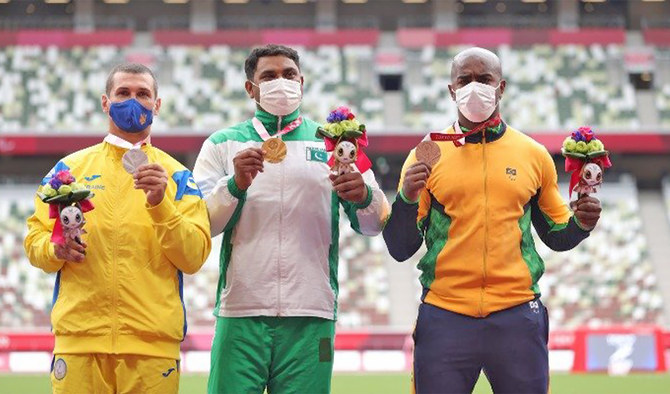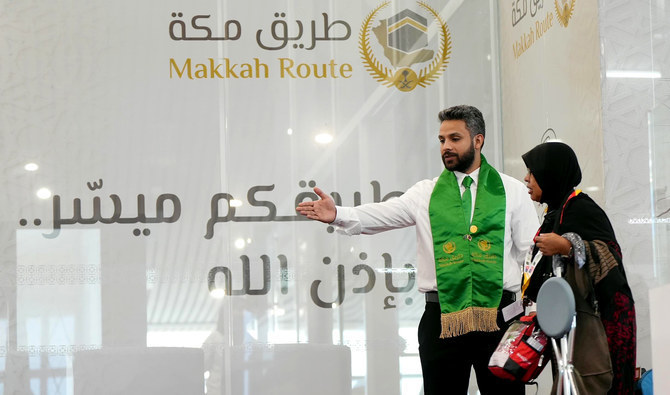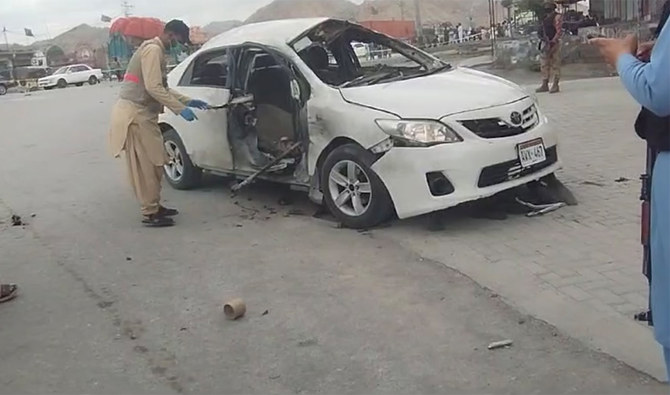RAWALPINDI: Born in a small town near Gujranwala in Pakistan’s Punjab province, Haider Ali made the dream of many Pakistanis come true by winning the first ever gold medal for his country at Tokyo Paralympics last week. He achieved a 55.26m discus throw at his fifth out of a total of six attempts to score the best distance — almost 3m ahead of Ukraine’s Mykola Zhabnyak who scored 52.43m to book the second position.
The youngest of 10 children of a landowning family, Ali was diagnosed with cerebral palsy (CP) at birth on December 12, 1984. CP is a group of permanent movement disorders that can impact a person’s coordination, lead to compromised muscle strength and produce tremors due to abnormal development of certain parts of the brain that control our balance and posture. There is no known cure for CP, though people with it can live a rich and active life with therapy, supportive treatment and medicine.
Despite being pampered by everyone in his family, it was not easy for Ali to grow up in a hamlet, where he spent the first 15 years of his life struggling with the debilitating ailment.
“My childhood was very tough, and it was not easy to face challenges related to CP that the world did not understand or know about,” Ali told Arab News on Wednesday. “When I was 18, I started taking sports more seriously and things began to change for me.”
Ali and his family shifted to the Gujranwala city and opened a plastics factory when he was 15. He started paying closer attention to sports after getting himself enrolled in college at the age of 18.
“When I entered the college and got involved in sports, I realized it was giving me a lot of strength,” he said. “Previously, I felt quite weak. Sports activities also disciplined me and built my confidence.”
In Gujranwala, Ali did not have access to the kind of coaching and training he eventually had as a member of the national Paralympics team. He started watching training videos on YouTube as well.
After finishing his studies in 2005, Ali saw a news report on Paralympics and contacted authorities in Pakistan. Following a trial, he was selected to train more rigorously for competitions.
“Whenever we get a new student, we look at their potential and Haider was brimming with it since he had already accomplished a great deal as a student,” Ali’s coach Akbar Ali Mughal told Arab News. “We knew he was going to get better with proper training.”
The Pakistani athlete has traveled around the world and brought several medals home, since joining the training program offered by Pakistan’s National Paralympics Committee.
He won a silver medal for long jump at the 2008 Beijing Paralympics, and a bronze for long jump at the 2016 Summer Paralympics in Rio, Brazil.
“We have all worked very hard for 16 years here,” Mughal said. “Ali also took his camps and training very seriously, and finally managed to achieve this gold medal. It has been quite incredible.”

Pakistan's Haider Ali competes in the men's long jump F37/38 final during the athletics competition at the London 2012 Paralympic Games at the Olympic Stadium in east London on September 5, 2012. (AFP)
Prior to his Tokyo Paralympics gold, Ali has racked up an impressive number of medals in both national and international competitions.
“My parents, my family were very supportive of me. They were there for me, every step of the way. My father and my mother walked with me,” the athlete told Arab News. “They never stopped me from anything, neither did they pressure me to leave sports behind to study or follow a career that they wanted for me. Being in sports was a big thing for me and they saw the potential in me from the beginning.”
Although Ali was the only one among his siblings to pursue sports, his family was not a stranger to sports activities since both his grandfather and father had been into bodybuilding.
His father, Sadiq Ali, was a firm supporter of his son and allowed him to choose his own path.
“None of my other kids took interest in sports like Haider did from the beginning,” Ali’s father said. “He was always a smart and good child. He was always into games while he was in school, and I always encouraged him. I never pressured him to do things beyond asking him to study hard and follow sports with passion.”
“I am incredibly proud of my son,” he said, adding that parents should always take their role in shaping their children’s lives seriously.
“I believe that children, all kinds of children, with or without disabilities, should never be scolded,” he said. “They should be taught with love and we should set a good example for them so that they may go on to mirror that.”
Ali said he gradually gained confidence after the Paralympics began in Tokyo.
“I did not think I was going to get the gold, but I felt a lot of confidence when the competition began,” he said. “I had this dream for the past 16 years that one day I was going to get a gold for my country. It was almost surreal when I won the competition!”
















